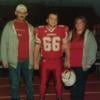Search the Community
Showing results for 'renew bariatrics'.
Found 17,501 results
-


Anyone having surgery in November?
Dream4tc replied to sunstorm14760's topic in PRE-Operation Weight Loss Surgery Q&A
Have you tried the Bariatric Fusion Multivitamin Soft chews? They are delicious and sugar free. I have tried about every vitamin there is and these are the best tasting. I'll post a pic of what I am using -


Chewable vitamin and dumping
jj7481 replied to xylena88's topic in POST-Operation Weight Loss Surgery Q&A
Definitely go with a bariatric specific formula. I'm using Optisource as it is a truly complete multivitamin. It has all the iron, calcium, vitamin c & d, folate, b12, etc. All in chewable tablets. -


mexico or deal with insurance company
bellabloom replied to Kat1969's topic in Tell Your Weight Loss Surgery Story
I would definitely consider Mexico. Tijuanna has a top notch facility dedicated to bariatric and plastic surgery only. Just remember if you have a complication like with your gallbladder for example, you might have to return. Although your insurance here will likely cover gallbladder stones. Mexico is a great choice. -
My program offered it along with other things for a $150.00 lifetime bariatric club membership fee. I'm due for another in a month at my six month check-up (not sure if I have to pay again). I am a big advocate of them. I found it extremely helpful to have a goal weight range based on my body, bone density, and body composition. With my DXA I ended up with a goal weight range of 170-177. So technically, I am one pound from my doctor's goal weight. I still feel that I can lose quite a bit more so I am not going to stop. But, my weight loss has slowed considerably and this helps me to understand why. At this point I see every pound I lose as a bonus and don't view myself as a failure because I am not in line with standard BMI charts. I'm in Michigan.
-
My first NUT gave me a an initial calorie total to stay under each day and progressively lowered it each month. I wound up switching bariatric centers on the third month when I opted to self pay and have the surgery much sooner than waiting the 6 months + approval process time. After switching centers on the third month, I stayed with the prior calorie limit, but I went low carb with it. The final 14 days prior to surgery were limited to 4 Protein shakes per day only (under 600 calories). I lost 55 lbs in those 4 months leading up to surgery. I could've done better had I exercised more, but was recovering from a back injury (the deciding factor that nudged me into seeking wls) and simply trying to hold it together and get the weight off and get relief. It was easy and I kick myself in the arse for not doing all this much earlier in life.
-


Do we have to follow up with our Doctors FOREVER? :(
Bufflehead replied to AchieveGoals's topic in POST-Operation Weight Loss Surgery Q&A
I don't see my surgeon every year, but he's not the only physician in town who can order and read blood work. My PCP knows I had a sleeve gastrectomy so as part of my regular annual physical, she includes orders to check my vitamin and iron levels. I do think it is wise to keep seeing your bariatric team until you have successfully reached goal and maintained it for a year. Also, if you start any sort of re-gain they should be the first people you contact. -


6 Month Diet before the surgery prep diet
tooblu96 replied to ItsTime4Change2's topic in PRE-Operation Weight Loss Surgery Q&A
I am also required to do a 6 month diet documentation. I'm tracking my sugar intake through my fitness pal and keeping my sugar grams below 24 g, since I'm a diabetic. My focus is high Protein (between 80-100 g) and low carbs. So far, I've lost 13 pounds since the beginning of December. My blood sugar levels are thanking me because they are fantastic. I've also started taking a bariatric Vitamin. -
thought I would revisit this tread. I don't know who said it, but it goes something like "you cannot achieve what your mind cannot concieve." If we cannot reallistically picture ourselves at our goal, how can we acchieve it? This is true for those of us who don't really know what we look like, ever. I wonder if there is a software package that will cause people to "loose" weight? I mean there are software packages out there that will age people, these are used by law enforcement agencies that track lost or missing children. (I watch a lot of true crime tv ) So, it makes me wonder if there is any software that will reduce someone's picture? I can see this being a very big seller for bariatric doctors...
-
St vincent's has a bariatric center in Carmel which is a little closer to you then Indianapolis And also where I hope to get my surgery done. Changing Bodies. Changing Lives. Ive heard from people that they really are a great place to have surgery done especially if your a really big person like I am. They have the bigger beds/gowns etc.
-


Unhappy with bariatric surgery 1 year later
Sleeve_Me_Alone replied to Hannah_Johnson's topic in POST-Operation Weight Loss Surgery Q&A
First of all, I'm so sorry you are struggling. Know that you are not alone and that many folks experience some wonderful things after WLS as well as some more difficult things. That is just part of the process; its definitely not always sunshine and roses. 1- Constipation is VERY common. Are you taking an iron supplement? They are notorious for exacerbating constipation. If you're taking any additional iron, it may be worth getting your labs checked - if they are normal, maybe you can drop that? Another option would be to add a prebiotic fiber supplement. I take about 15g of Just Better Fiber daily and it is a HUGE help. Make sure you are well hydrated, especially when taking laxatives, stool softeners, etc. Lastly, are you getting in any fiber in your food? This goes with #2.... 2- The return of hunger is normal and expected. Your body is doing EXACTLY what its supposed to do. It may be helpful to start introducing more fruits & veggies, which will help you feel fuller longer and help with constipation. Also, are you hitting your protein goals? If not, definitely focus on getting that protein in. If you're hitting your goals, adding in nutrient rich fruits & veggies, and STILL feeling uncontrollably hungry, then it may be time to consult with a bariatric dietitian. Hunger is normal, feeling miserable is not. 3- I think a LOT of us struggle with body image before and after surgery. There is a trade off that happens - we lose the weight and are healthy, but it can make the physical effects of a lifetime obesity more obvious to us. Therapy therapy therapy. I can't encourage it strongly enough. Learning to cope with those feelings, learning to be kind to our new bodies, learning to love ourselves well, THAT is the hard work of weight loss and it is truly a lifelong process. Get help, and keep getting help. Outside of that - buy clothes that make you feel good, as much as you can focus on what you LIKE about your body instead of what you don't, if its practical for you, you can always look into plastic surgery, and of course, you could just refrain from looking in the mirror naked. I know, easier said than done, but if its causing your harm emotionally, then maybe hold off for now. You aren't alone and you aren't crazy. WLS is hard work and there is a lot that comes with it that doesn't get talked about much. We are rooting for you. -
Dtadoyle-- it is outrageous to think that you might have to GAIN weight in order to LOSE weight permanently!! I have seen this issue come up on other areas of this forum and suggest that you write about your situation in various places on Bariatric Pal. You might get some helpful tips, advice, ideas about handling this. My advice is to push everyone. Get your doc to write a letter to Aetna about your particular health situation. How's your heart? Maybe a visit to a cardiologist for a work up might help. My cardiologist was thrilled when I decided to do this! Keep me, all of us posted
-
Every office is going to be different but asking any questions you can think of is the best thing. Even if it's an embarrassing one ask it because I'm sure they've heard worse.....lol Also do research on the Internet to come up with questions, maybe about something you don't understand. My office required me to go to 3 pre op bariatric support groups. Very very informational ! You also can ask a ton of questions there too and no one is there judging you. Good luck too you and this wonderful journey!!
-
Really I think you need to see a qualified Bariatric nutritionist. Congratulations on losing the 102 lbs. that is fantastic! We can all tell you what we do, or don't do but we all have different stats. Like heights, exercise regimes, jobs, even where we live can make a difference etc. There are a lot of threads about plateaus and you can search for them and read it all but none of it will be as succinct as a nutritionist that you get on with and trust. I personally have not read about any sleeve patient that can get in 1500 cals per day in the first year or so, but that is not to say there are none around. There are also a lot of books, many of which you can download, which will help with post surgery dietary requirements. I am a bit concerned about the sugar question, do you mean carbs found in fruit and veges or do you mean sugar added? If you mean sugar added the answer is none full stop. I am sure you will get more answers but I hope this helps in the meantime.
-
HI there...I'm 10 months post-op... Vitamins and other supplements Bariatric Advantage chewables (don't give up after the first few tries - you get used to the taste), essential fatty acids, Vitamin D Protein shakes unjury vanilla and chocolate Splendor (try sugar free Torani syrups to mix in - they have tons of different flavors) Skin products for sagging Nivea Skin Firming Body Lotion (honestly, I don't know if it helped, but it made me feel like I was doing something productive and my skin is much softer) hair products for hair loss Biotin and Folic Acid (approved by doc), Nioxin shampoo & conditioner, Toppik (to cover the hair loss - works just like their on-line videos) My doc says there's nothing you can do to stop the loss, but you can help it come back.
-


Do we have to follow up with our Doctors FOREVER? :(
VSGAnn2014 replied to AchieveGoals's topic in POST-Operation Weight Loss Surgery Q&A
I'm coming up on two years post-op next month (August 2016). At that time I'll see my surgeon and his bariatric P.A. Before I see them I'll have another comprehensive blood panel done, and we'll look at the blood work at that time. Even though the sleeve doesn't have the big nutrition malabsorption issues of the gastric bypass or some other procedures and even though I take my vitamin/mineral/other supplements regularly, I am taking a conservative approach about my health after WLS. I know that right now I'm doing great (have lost 100 pounds and maintaining well at 135). But I still want to check in. I feel that seeing my surgeon annually is an accountability check for me. Like others said, if you don't see your bariatric team going forward, you should definitely have your bariatric blood panels done annually and review the results with your PCP or another doctor who knows what they're looking at. Congrats on your success thus far! -


Do we have to follow up with our Doctors FOREVER? :(
LisaMergs replied to AchieveGoals's topic in POST-Operation Weight Loss Surgery Q&A
Hi- couple of things: Once a bariatric patient, always a bariatric patient. Same if you had a heart attack- you always always follow up with your cardiologist. After a year, most surgeons, including mine, see you yearly. They do so for many reasons, the biggest being to make sure you are healthy, no issues with your new stomach, and also- if you start slipping, they want to hear from you to get you back on track. I can't quite understand why it would be an issue for any of us to see the person who helped us transform once a year? Small "price" to pay for health. There are plenty of people who end up with some kind of deficiencies because they aren't following their plans. Plenty who "slip" and are lost. I'd imagine if I moved I would ask my surgeon for a referral to someone he knew so I could continue my follow ups. Many GP docs aren't tuned in to bariatric needs. Just my two cents worth. FYI- post op- saw my doc 1 week, 3 weeks, 6 weeks, 3 months and then I will see him at 6 months and 1 year post op. Yearly thereafter. Those are his requirements. Sent from my iPhone using the BariatricPal App -


NO JUDGEMENT ZONE!
Madam Reverie replied to Ready2Live76's topic in PRE-Operation Weight Loss Surgery Q&A
Absolutely not. Have at it. As long as you're not getting smashed out of your mind (because alcohol dehydrates and can take a while to work out of your system) and its just a feed of mexican food (hopefully the balanced good stuff), it will not throw your pre-op diet off. I was reliably informed by my bariatric nurse, the pre-op diet is to stop those who are chuffing down multiple bottles of booze and eating fried everything daily. A week before surgery I went out on the lash (drinking) with some gusto about 7 days before surgery. The night before surgery I had pizza, chicken tenders and a coke. I was given permission to do so.. That being said, however, i was a relatively low BMI starter, so the liver shrinking wasn't such a pressing issue for me. Whats your BMI right now? If my BMI was very high, I might not consider having the alcohol and just have the dinner. If you moderate your intake, so you're not a total glutton (maybe max 4 drinks, with Water in between and some food), it should be all good by Monday. Just be mindful as previously stated; it might mess with your head a bit after you get sleeved. I definitely mourned what I could no longer have in the short term. But then in saying that, this could be seen as a little food funeral (and EVERYONE, has had some form of that). I say go for it. In three days your world is going to change. Dramatically. Enjoy -
Hi buzimom, I was just banded by Dr Lederer at HCMC Bariatric Center in Minneapolis and was very pleased overall with the care, staff, etc. My surgery went smooth and quick with zero complications. I feel very fortunate that I have been relatively free of pain--just some minor discomfort. Is St Joseph's in the Twin Cities? Sorry, I am new to the area, so I can't help much in that regard. Read and research as much as you can--you can't be over prepared-it made me feel better to be informed and at least, feel as if I was prepared for surgery. Much of what I did and gathered together was not needed but, I it was comforting to me prior to surgery to know it was there should I need it. Best of luck to you. Feel free to PM or email me, if you like.
-
:biggrin: Hello all. My name is Jenn and I am new to this site. I have started my journey with VSG but have not had the procedure yet. I have had the initial consultation, insurance approval and dietitian meeting. I am new to the Texas area and am wanting to get some more information on my doctor, Dr Jerome Schrapps with Southeast Texas Bariatric Beaumont location, preferably by someone who has had the procedure. I have the diet class and psych eval next week so it looks as if things are moving right along. My family is very supportive but I am extremely nervous.
- 31 replies
-
- Christus Beaumont
- Schrapps
-
(and 1 more)
Tagged with:
-
Overall, surgery does increase our life expectancies. Your individual mileage may vary. https://asmbs.org/resources/long-term-survival-benefit-after-metabolic-and-bariatric-surgery
-


3 options: which one would you choose?
mtlmiracle posted a topic in PRE-Operation Weight Loss Surgery Q&A
Hello, Over the course of October I will meet with three different medical professionals to choose a weight-loss option. First I will meet with a coach from The Fasting Method. She specializes in Fasting regimens and Behavioural Therapy. The cost is around $1000 for 4 online coaching sessions and an online support group. Most of the fasting I will do myself and will need a lot of determination to stick to the 36-hour fasting protocol they recommend. Next, I have a consultation with a surgeon at a private clinic. The cost will be 14,000 for a gastric sleeve and the surgery would be completed before the end of the year. They provide all of the medical services for surgery plus 3 months of nutrition counseling and medical follow-up at 1 month, 3.5 months, and 1-year post-op. They also have an online facebook support group. Finally, I have an appointment with a new General Practitioner who could provide me with a referral to a bariatric clinic within a hospital. This process would be covered by the province if I were accepted into the program. However, the process could take several years (1-4 years) before I received the surgery. Yet they would provide the most support both before and after surgery in order to be successful. I am really unsure of which option is best for me and I wonder if other people might have insight into what could work for them knowing what they know now. The first option, fasting, I have tried on my own and was successful for 8-12 months but gained all the weight back and then some. The second is the quickest way to put in place a permanent tool that I will have to use on my own to lose weight. It is also the most expensive. The third option would provide me with a lot of support and I think I probably do need some type of talk therapy. I'm expecting this surgery and the dramatic weight loss to be like an emotional rollercoaster for me. However, I do not have many obesity-related complications just yet (such as diabetes, hypertension, etc.) although my BMI is around 40. How much support did you need? Which option would you choose knowing what you know now? -


Dr. John Oldham - Dr. Oldham in Etown ?!?
Day Dreamer replied to Day Dreamer's topic in Weight Loss Surgeons & Hospitals
I went to the Bluegrass seminar on Saturday. It was ok except Dr. Oldham was in emergency surgery?!!? So the coordinator and finance person gave the seminar the best they could. It was a bit one sided as the coordinator had the Band and that is all she spoke about. She grazed over the other options saying she didn't have information on them. Sad. She did mention the Bariatric Advantage program and said how well it works but that it was not mandatory. She said many people use Atkin's brand shakes or other meal replacement bars, but they need them to be low carb. I am thinking about going to Dr Lusco's seminar at the end of this month. Not sure if I am up for the drives back and forth though. -


Goodbye Lane Bryant
Justinh125 replied to Brighteyes's topic in PRE-Operation Weight Loss Surgery Q&A
My most recent girlfriend purchased clothes from there, and I had no idea it was a "big girls" store. I never really realized that until someone else pointed it out to me....though I doubt my ex would ever want bariatric surgery, I never really thought of her as big, so I guess that's why I didn't realize what Lane Bryant was.... -
Love how you post in the Mens Room and get mostly female answers? Upper GI endoscopy is probably the test. (The tool is an endoscope, the procedure is endoscopy, and upper GI is where they're going.) You'll most likely be in twilight sleep for it, and completely unaware - or maybe slightly aware. I can remember being wheeled into the room. I remember them telling me "We're going to stick this in your mouth" and it looking like a big beige Tylenol with a hole in it (they thread the camera through it), but I don't remember it going in my mouth. I also remember them telling me they were going to spray the stuff that numbs the throat (limits gag reflex) but I don't remember tasting it or anything. I just remember these things as snapshots after the fact. It's truly no where near as horrible as I expected it to be. Usually insurance companies are wanting "documented" weightloss attempts (e.g. those mentioned before, for which you would have a receipt, or log, or weigh-ins, or could somehow verify you really did it). But not always. Write down anything you can think of: what you did, what you lost, etc. In my documentation for my first bariatric surgery (lapband) I included a crazy, but successful diet I did ~1995 where I ate whatever I wanted but no more than 10gm of fat a day. I also documented my Atkins diet attempt, for which I printed out logs I'd kept on an Atkind diet messageboard. DcMak72 - it indeed will be here like *that*. Use the time to get your preparations done - find a few Protein powders you like, start making the behavioral changes you'll need post-op (e.g. chewing everything to goo - breaking bad chewing behaviors is harder than it seems it would be), if you don't yet start ensuring you're taking in 64 oz of Water a day, at least -- if you're going high protein use 64 oz as your base, and add 8 oz for every 25 lbs of weight you need to lose. I had to wait about 6 mos between my band removal and my sleeve (insurance fiasco), and about 1.5 mos between being scheduled and surgery date. At the time it seemed impossibly long, but overall it flew by. Best of luck!
-
I had my bariatric lap banding done in 2011. I did really well with it but have had other complicationsthat have kind of stalled my weight loss. I had a Bilateral Double Mastectomy in September of 2012. My original reconctruction did not work. I have the option now to have a DIEP Flap, which is using the fat and tissue from my stomach to reconstruct the breasts. Basically a tummy tuck. I am wondering if there is anyone on this forum that has had this surgery? I would really like to chat with you. Thanks














